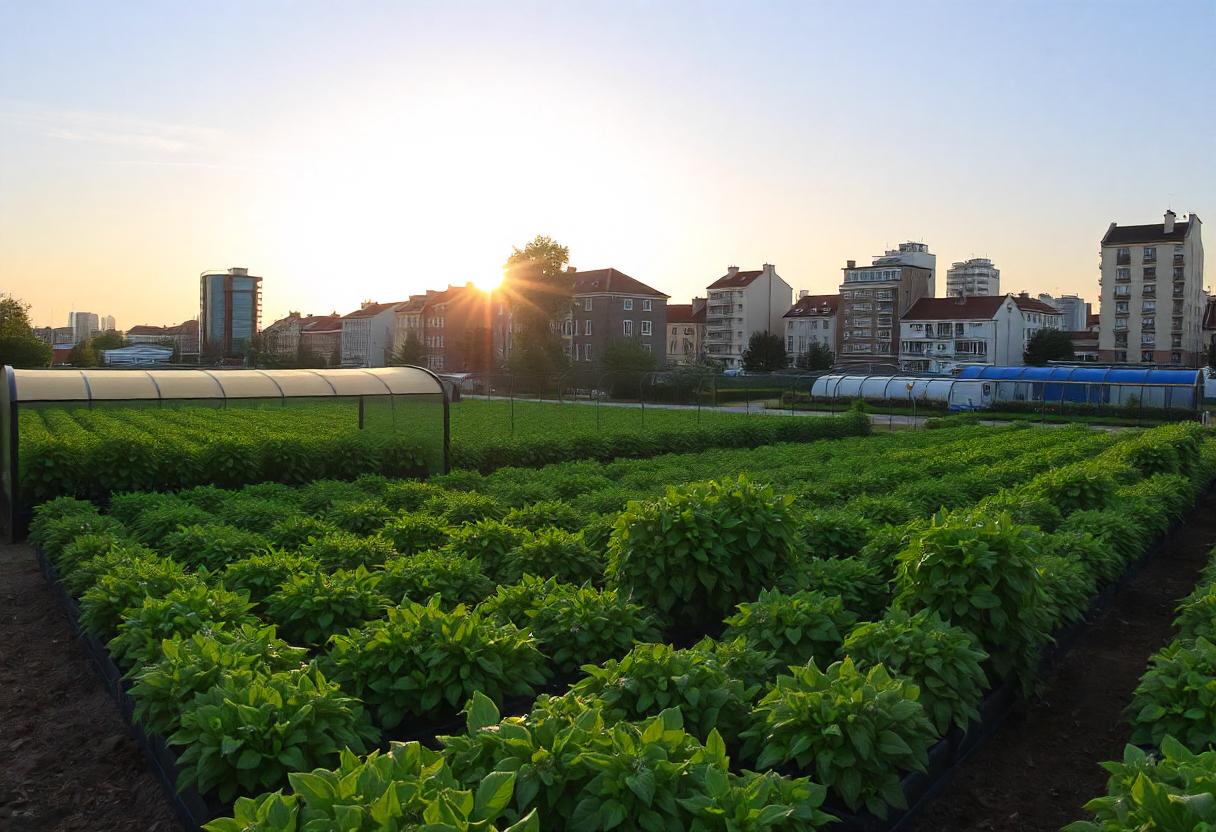
Urban agriculture, or “agriculture urbaine,” refers to the practice of cultivating, processing, and distributing food in or around urban areas. This movement has gained popularity in cities worldwide as people seek sustainable ways to produce food locally, reduce carbon footprints, and enhance food security. Urban agriculture involves various activities such as growing vegetables on rooftops, community gardening, and raising livestock in city environments.
Benefits of Urban Agriculture
Urban agriculture provides a range of benefits, both for cities and their residents. It helps in reducing food miles, thus cutting down transportation emissions. It also creates green spaces in urban areas, contributing to biodiversity and improving air quality. Urban farming provides city dwellers access to fresh, locally grown produce, often at a lower cost than imported food. Additionally, urban agriculture can strengthen community ties by bringing people together through shared gardening projects.
Different Forms of Urban Agriculture
Urban agriculture takes various forms depending on the available space and local conditions. Community gardens are one of the most common forms, where residents work together on shared plots of land. Rooftop farming utilizes unused rooftop spaces to grow crops, while vertical farming uses high-tech systems to grow food in stacked layers, often indoors. There is also the practice of aquaponics and hydroponics, which combine fish farming with plant cultivation, requiring minimal soil or traditional farming land.
Role in Food Security
One of the key motivations behind urban agriculture is its role in promoting food security, particularly in densely populated cities. With the increasing global urban population, many cities struggle to provide enough food to meet local demand. Urban agriculture can help address this by supplementing the food supply with fresh, locally grown produce. It also reduces dependence on large-scale industrial farms and global supply chains, which can be vulnerable to disruptions.
Environmental Impact of Urban Agriculture
Urban agriculture has a positive environmental impact by utilizing underused or vacant urban spaces for productive purposes. It helps in reducing the urban heat island effect by increasing green spaces, which cool down city environments. Furthermore, urban farms often employ sustainable farming practices like composting, rainwater harvesting, and organic growing methods, which contribute to resource conservation and lower environmental degradation.
Social and Economic Impacts
Urban agriculture has a significant social and economic impact on cities and their residents. It offers opportunities for local employment, particularly for marginalized communities who may struggle to find jobs in other sectors. Urban farming can also empower residents by teaching them valuable agricultural skills and providing them with access to healthy, affordable food. Socially, it encourages community collaboration, fosters a sense of ownership, and strengthens local food systems.
Challenges of Urban Agriculture
While urban agriculture offers many benefits, it also faces a number of challenges. Limited space in densely populated cities is one of the biggest barriers, as there is often competition between urban farming projects and commercial or residential developments. Additionally, access to clean water, soil contamination, and zoning regulations can create obstacles for urban farmers. Securing funding and resources is another challenge, particularly for low-income communities attempting to start urban farming initiatives.
Urban Agriculture in Global Cities
Urban agriculture is practiced in cities all around the world, with each region adopting methods that suit its unique environment. In North America, cities like New York and Toronto have embraced community gardens and rooftop farms. In Europe, cities like Paris and London have implemented policies to support urban farming projects. In developing countries, cities like Nairobi and Mexico City have integrated urban agriculture as a way to address food insecurity and create jobs for low-income residents.
Future of Urban Agriculture
The future of urban agriculture looks promising as more cities recognize its potential to contribute to food security, environmental sustainability, and social well-being. With advancements in technology, such as vertical farming and aquaponics, urban farming is likely to become even more efficient and scalable. Urban agriculture could play a vital role in creating resilient cities that can meet the challenges of growing populations and climate change.